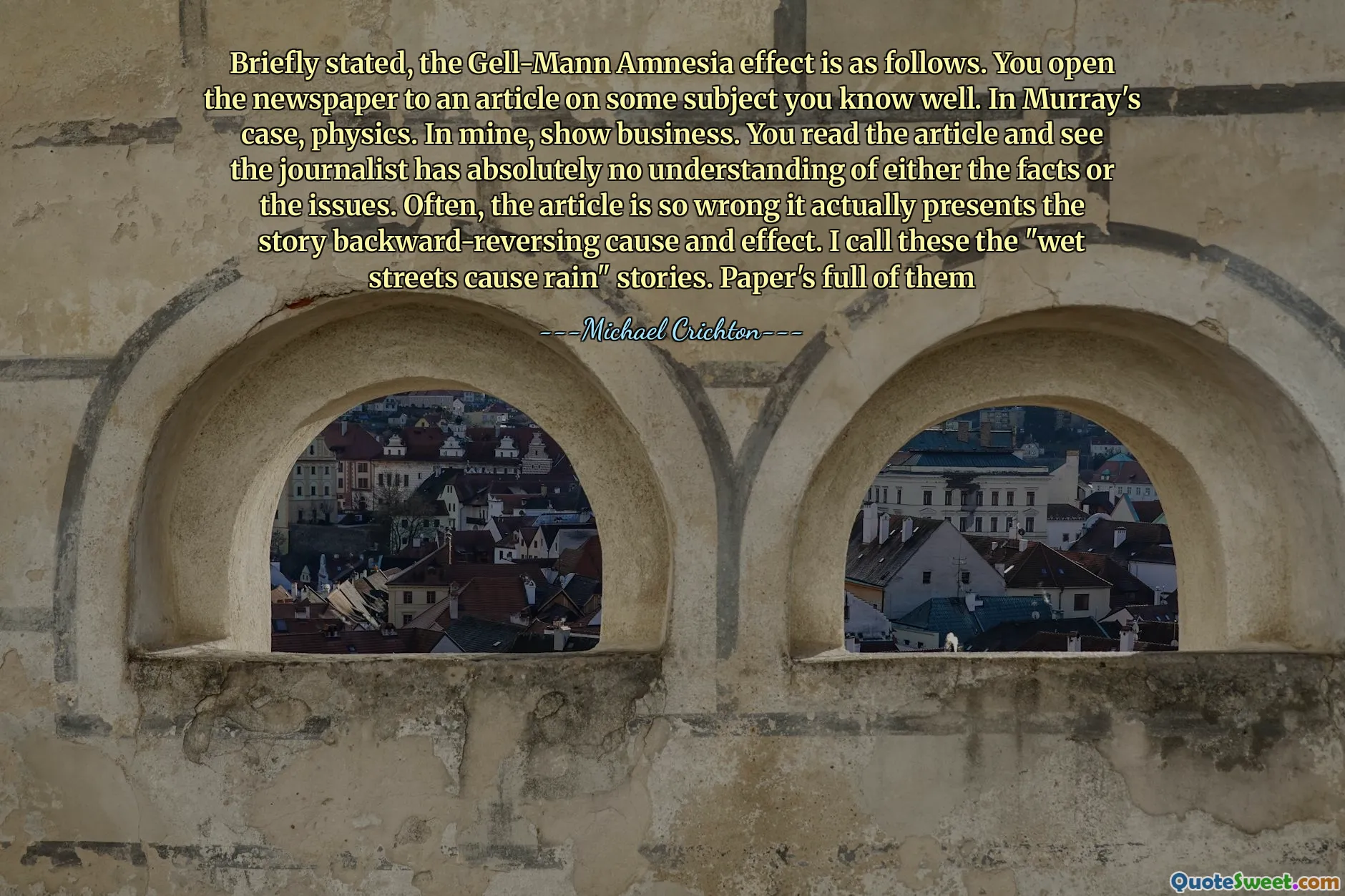
Briefly stated, the Gell-Mann Amnesia effect is as follows. You open the newspaper to an article on some subject you know well. In Murray's case, physics. In mine, show business. You read the article and see the journalist has absolutely no understanding of either the facts or the issues. Often, the article is so wrong it actually presents the story backward-reversing cause and effect. I call these the "wet streets cause rain" stories. Paper's full of them
The Gell-Mann Amnesia effect highlights the phenomenon where one realizes a journalist's lack of understanding when reading an article about a subject they are knowledgeable in. For instance, Murray, with his background in physics, encounters instances where the article presents incorrect facts and misrepresents the issues at hand. This leads to frustration, as it often results in stories that distort reality, such as incorrectly establishing cause and effect relationships.
This distortion is not isolated to physics; Michael Crichton also reflects on his experiences in show business, where he often sees similar inaccuracies. The term “wet streets cause rain” exemplifies how some articles misattribute causality, leading readers to question the reliability of the media. These observations suggest a broader issue with journalistic standards and the importance of skepticism when consuming news, especially on topics outside one's expertise.






